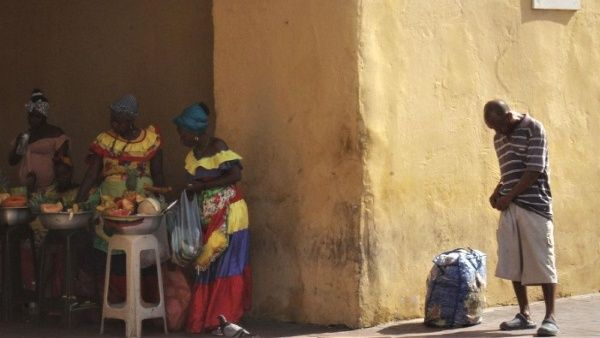
The FAO representative in Colombia, Alan Bojanic, said that farmers must be given the tools to cultivate the land. | Photo: Tierra Viva
Bogota, August 20 (RHC)-- The president of the Colombian Senate, Roy Barreras, said Friday that it is urgent to approval of the "Law against Hunger" in the South American country, as part of what he called "a comprehensive look at food security and sovereignty, rural development and rural economy."
Barreras' statements were made in the framework of the National Agreement Against Hunger Forum, a meeting organized by the United Nations Food and Agriculture Organization (FAO) and the Parliamentary Front Against Hunger, through the Mesoamerica Without Hunger Program AMEXCID-FAO.
According to the parliamentary leader: "Today, we urgently need to pass the 'Law against Hunger' and the tax reform, which are essential to pay for food for Colombians."
Senator César Pachon intervened in the panel, who informed that the objectives of the Law against Hunger would be to guarantee the right to food and reduce the cost of food production. "The only war we are going to wage is the war against hunger," he added.
For her part, Sandra Ramírez, from the Comunes party, said: "It is urgent to guarantee the right to dignified and quality food and to promote the implementation of point 1 of the Peace Agreement (of Havana, 2016)", the "Integral Rural Reform (is necessary) to develop production from the countryside."
Meanwhile, the FAO representative in Colombia, Alan Bojanic, indicated that peasants must be given the tools to cultivate the land: "Resources and decisive action by the State are required, the work of peasants must be dignified," he explained.
Last January, the FAO warned about the dangers of the deepening of "food insecurity," and pointed out that Colombia is the South American country with the highest risk of food insecurity.
The assessment was rejected by the then Colombian government of Iván Duque and requested the FAO that his country be excluded from the report. In that report, FAO warned that part of the Colombian population would face a significant deterioration of acute food insecurity (famine) in the coming months, which will put their lives and livelihoods at risk.

